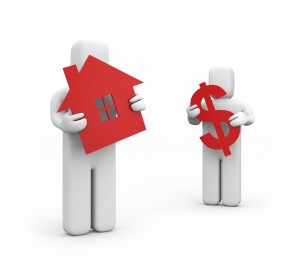
Investors made up a big chunk of the real estate market in 2011, but analysts disagree on the value of such transactions.
Sales of investment and vacation homes skyrocketed in 2011, with the combined market share jumping to its highest level since 2005, according to the 2012 Investment and Vacation Home Buyers Survey from the National Association of Realtors.
That survey found that, among existing- and new-home transactions in 2011, investment-home sales increased 64.5 percent to 1.23 million, up from 2010’s 749,000. Vacation-home sales, in fact, accounted for 11 percent of all transactions in 2011, up from 10 percent in 2010, while investment sales were 27 percent in 2011, a 59 percent increase from 2010.
NAR Chief Economist Lawrence Yun said the extraordinary increases were the result of investors with cash taking advantage of 2011’s uniquely buyer-friendly market conditions.
“During the past year investors have been swooping into the market to take advantage of bargain home prices,” Yun said. “Rising rental income easily beat cash sitting in banks as an added inducement. In addition, 41 percent of investment buyers purchased more than one property.”
Yun also said there is considerable benefit to those buyer habits, considering the backlog of REO properties the market still needs to absorb.
“Small-time investors are helping the market heal since REO inventory is not lingering for an extended period,” he said. “Any government program to sell REO inventory in bulk to large institutional companies should be limited to small geographic areas. Even where alternatives are needed, it’s best to rely on the expertise of local businesses, nonprofit organizations and government.”
The median investment-home price was $100,000 in 2011, up 6.4 percent from $94,000 in 2010, while the median vacation-home price was $121,300, down 19.1 percent from $150,000 in 2010. 49 percent of investment buyers paid cash in 2011, as did 42 percent of vacation-home buyers. The average downpayment for the properties was 27 percent.
“Clearly we’re looking at investors with financial resources who see real estate as a good investment and who aren’t hesitant to use cash,” Yun said.
Not all observers, though, share Yun’s positive outlook on the rise of investor buyers. In a CNBC piece on the data by Diana Olick, she quoted the skeptical words of Mark Hanson, a mortgage analysts who fears that investors add only more chaos to the housing market.
“They are fickle and volatile,” Hanson said. “They will go away on the slightest of conditions changes. They also won’t chase prices higher or buy new homes from builders. Lastly, without the heavy flow of distressed supply, there is no U.S. housing market recovery. Distressed sales ARE the market.”
So with Hanson’s viewpoint, there are two perspectives on the rise of investment sales. They are either good for the current housing market, in that they purge the market of the many vacant properties that negatively impact prices, or they are bad, because they are just another example of how crazy the current market truly is.
Which viewpoint do you agree with?
